Emergencies can be scary, but they’re even scarier when you don’t have a plan. We want to protect the citizens and visitors of Sevier County, TN by helping them be prepared for natural and manmade disasters. Learn more about how you can prepare for fires, floods, inclement weather, and prolonged power outages below.
Be Prepared
Fire
From wildfires to house fires, Sevier County is no stranger to fire emergencies. Fire is one of the most common disasters and can be deadly. It’s important to come up with a fire preparedness plan and a safety plan in the event of a structural fire or a wildfire. This includes everything from checking the batteries in your smoke detector to planning escape routes. Learn more about how to prepare for fires below:

How to Prepare for Fires
- Recognize warnings and alerts.
- Pay attention to air quality alerts.
- Make sure everyone in your household knows and understands what to do if you need to evacuate.
- Plan escape routes and make sure everyone in your household knows the plan of action.
- Review insurance policies and make sure everything is up to date.
- Make copies of important documents and keep them in a secure, password-protected digital space.
- Put together a basic emergency supply kit, including a first-aid kit.
- Create a fire-resistant zone free of leaves, debris, or flammable materials for at least 30 feet from your home.
How to Stay Safe During a Fire
- Pay attention to emergency alerts. To receive emergency alerts within Sevier County, register for CodeRED and download the CodeRED Mobile Alert App.
- Evacuate immediately if you’re told to do so.
- If trapped, call 911 and give your location.
- Use an N95 mask to protect yourself from smoke inhalation.
- Do not return home until authorities say it is safe to do so.
Returning Home After a Fire
- Avoid hot ash, charred trees, smoldering debris, and live embers.
- When cleaning, wear protective clothing, including work gloves and sturdy, thick-soled shoes.
- Document property damage with photographs. Conduct an inventory and contact your insurance company for assistance.
Wildfires
Wildfires are unplanned fires that burn in natural areas like forests, grasslands, or prairies, These dangerous fires spread quickly and can devastate not only wildlife and natural areas but also communities.
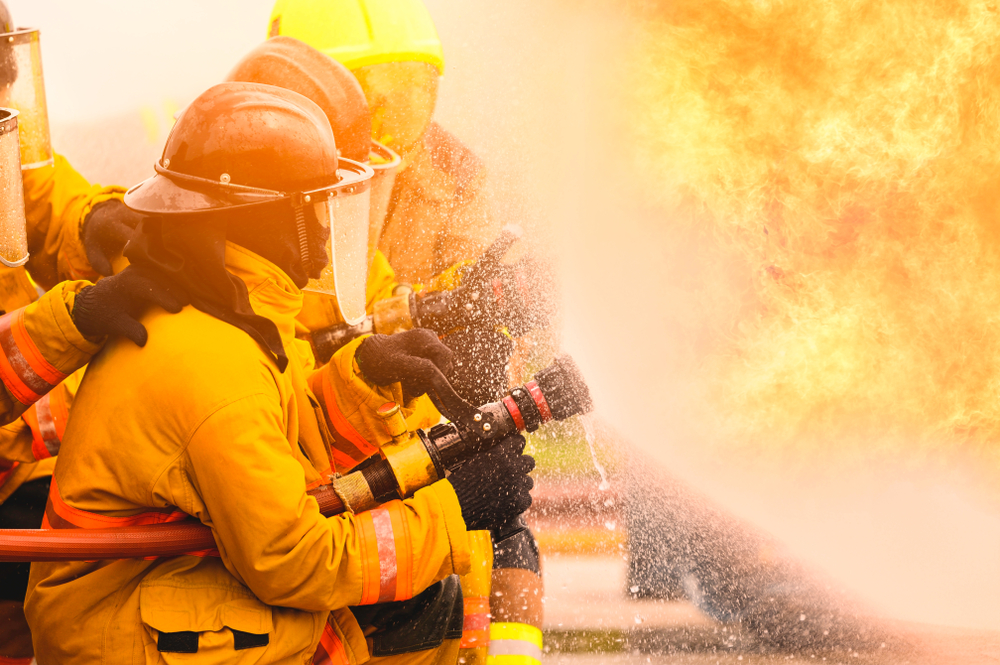
How to Prepare for Wildfires
- Recognize warnings and alerts.
- Pay attention to air quality alerts.
- Make sure everyone in your household knows and understands what to do if you need to evacuate.
- Plan escape routes and make sure everyone in your household knows the plan of action.
- Put together a basic emergency supply kit, including a first-aid kit.
- Create a fire-resistant zone free of leaves, debris, or flammable materials for at least 30 feet from your home.
- Sign up to receive CodeRED Emergency Alerts. To receive emergency alerts within Sevier County, register for CodeRED and download the CodeRED Mobile Alert App.
- Keep your cell phone charged when wildfires could be in your area.
How to Stay Safe During Wildfires
- Pay attention to emergency alerts.
- Evacuate immediately if you are told to do so.
- Call 911 to report any fires or if you are unable to evacuate safely.
- Do not return home until authorities say it is safe to do so.
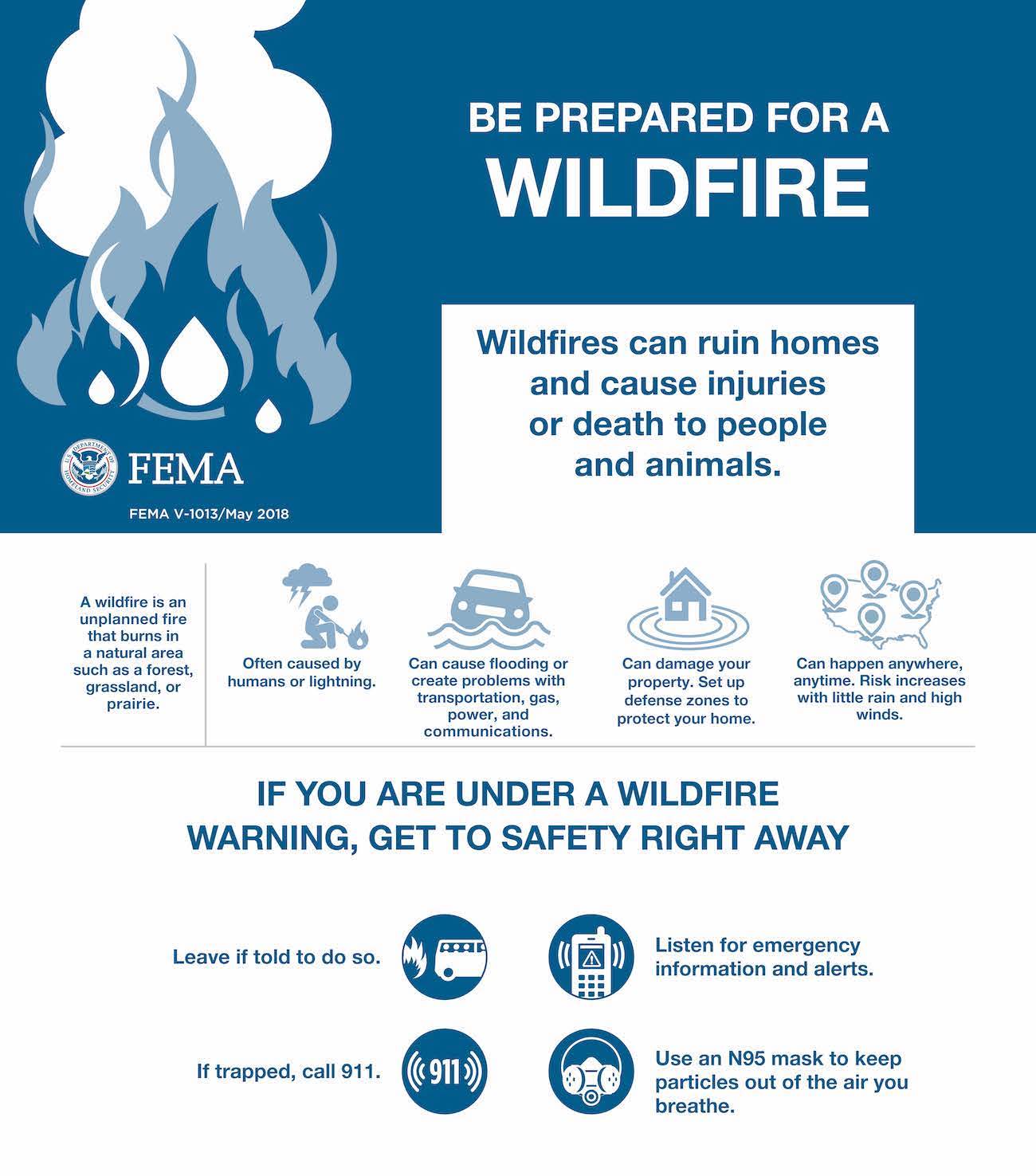

Flooding
Floods are the most common natural disaster in the United States. They can result from rain, snow, and storm surges. Oftentimes, flash floods can come with no warning and cause outages, disrupt transportation, damage buildings, and lead to rockslides and landslides. When you’re prepared for a flood, you have a better chance of staying safe. You can practice evacuation routes, create shelter plans, and gather supplies, including non perishable foods, cleaning supplies, and water for a few days in the event that you have to leave immediately or services are cut off in your area.
Here are more tips for flood preparedness:
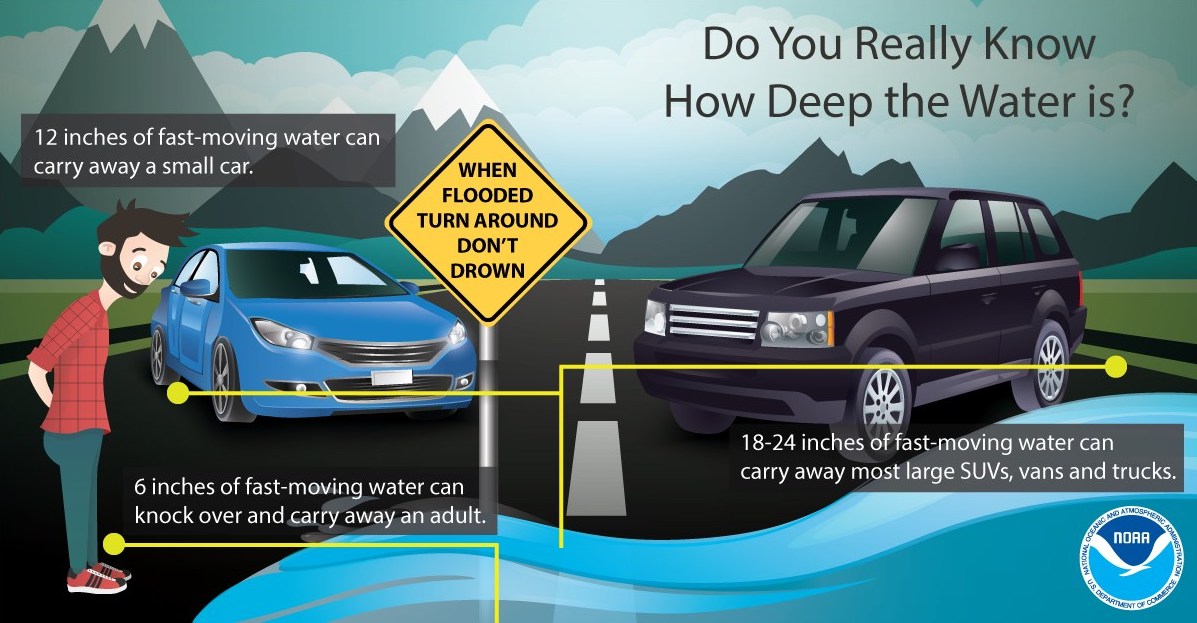
How to Prepare for Floods Before There’s a Risk
- Invest in Flood Insurance: Standard homeowners insurance policies do not always include flood coverage. Call and talk to your insurance agency for coverage questions.
- Invest in backup power: It is very possible that you could lose power during a flood. Purchasing a generator ahead of time would prepare you for backup power. Generators should always be placed outside to avoid filling your home with carbon monoxide.
- Waterproof your basement and home: Make sure that water will be redirected away from your home via gutters or a slope in the ground. You can also waterproof your concrete floors and walls of your basement. You can also damp-proof the outside of your foundation if the house didn’t already come with it. Hiring a professional to waterproof your basement or home is always encouraged.
- Pack an emergency kit: Pre-pack an emergency bag for everyone in your home and for your pets.
Responding Appropriately When a Flood is Coming
- Be aware of the weather and monitor the forecast.
- Watch your local news or listen to a local radio station or NOAA radio.
- You should also know the difference between a flood advisory, a flood watch, and a flood warning. Knowing what these terms mean will help you gauge the threat and prepare accordingly.
- A flood advisory means that minor flooding is expected to occur, but not enough to pose serious danger or damage.
- A flood watch is issued when conditions for flooding are more prominent and it is possible a flood may occur.
- A flood warning is given when a flood is imminent or already occurring.
- You should also know the difference between a flood advisory, a flood watch, and a flood warning. Knowing what these terms mean will help you gauge the threat and prepare accordingly.
- Get your home ready. Here are a few steps to help prepare your home for you to shelter in place. Please note you should never stay behind to do the below list if a flood is imminent and you have been informed to evacuate.
- Fill plastic bottles with drinking water
- Fill bathtubs and sinks with water for flushing the toilet and washing clothes
- Charge cellphones, radios, and flashlights.
- Unplug any unused small appliances to prevent damage from power surges
- If you have extra gasoline fill your car.
- Bring in outdoor furniture and secure any items left outside if you can do so safely and timely.
- Turn off propane tanks to reduce risk of fire.
- Prepare to evacuate – Stay informed about the conditions of your evacuation routes to assure you will have a safe exit. If instructed to do so, you should evacuate the area. Secure your home, gather your belongings, and load your vehicle. Be sure to check your evacuation routes to assure they are open before leaving your home. Keep your radio tuned to a local station so you can stay aware of weather conditions. Avoid areas with moving water and avoid any place with downed power lines to avoid electrocution risk. Please remember: TURN AROUND DO NOT DROWN. If your car becomes surrounded by rising water, get out quickly and move to higher ground.
- Pack an emergency kit for each person and pet in your home. If you live in a flood prone area, we encourage you to keep a ready-to-go bag packed with seasonal clothing, toiletries, medications, copies of important documents, and other essentials that you would need to bring with you during an evacuation.
What to Do During and After a Flood
- Avoid contact with floodwater: Avoid floodwaters as much as possible to avoid contaminants such as gasoline, oils or raw sewage. Avoid downed power lines to avoid potentially being electrocuted. Do not drink the water or let it come in contact with your skin, and dispose of any food that comes into contact with it.
- Keep listening to the weather: Keep listening to the weather reports and pay attention to what local authorities are saying. The authorities will let you know when it is safe to return to your home. Do not show up to help with cleanup unless specifically asked to do so by authorities. Otherwise you could block disaster relief experts from getting to areas and people that need help. Do not go around barricades, as they likely indicate flooded or dangerous roadways.
- Stay away from damaged areas: Once you have been given permission to return to your home proceed with caution and avoid damaged areas. Floodwaters can weaken roads and walkways to the point where they will collapse if a car drives over them. Floodwaters can also leave behind debris on roadways making it difficult to travel on. If your property has a septic system it is recommended that you have a professional assess it to assure the floodwaters did not cause any leakages or damage.
- Repairs to your home from floodwaters: Always re-enter your home with caution after a flood. Turn off the electricity at the main breaker or fuse box if it was not turned off prior to leaving. Wear heavy boots and pants when reentering the home and watch out for debris and animals that may have entered your home. Notify your insurance company prior to providing any cleanup and follow their guidance. The Red Cross offers a guide for cleaning up your home and other areas after a natural disaster.
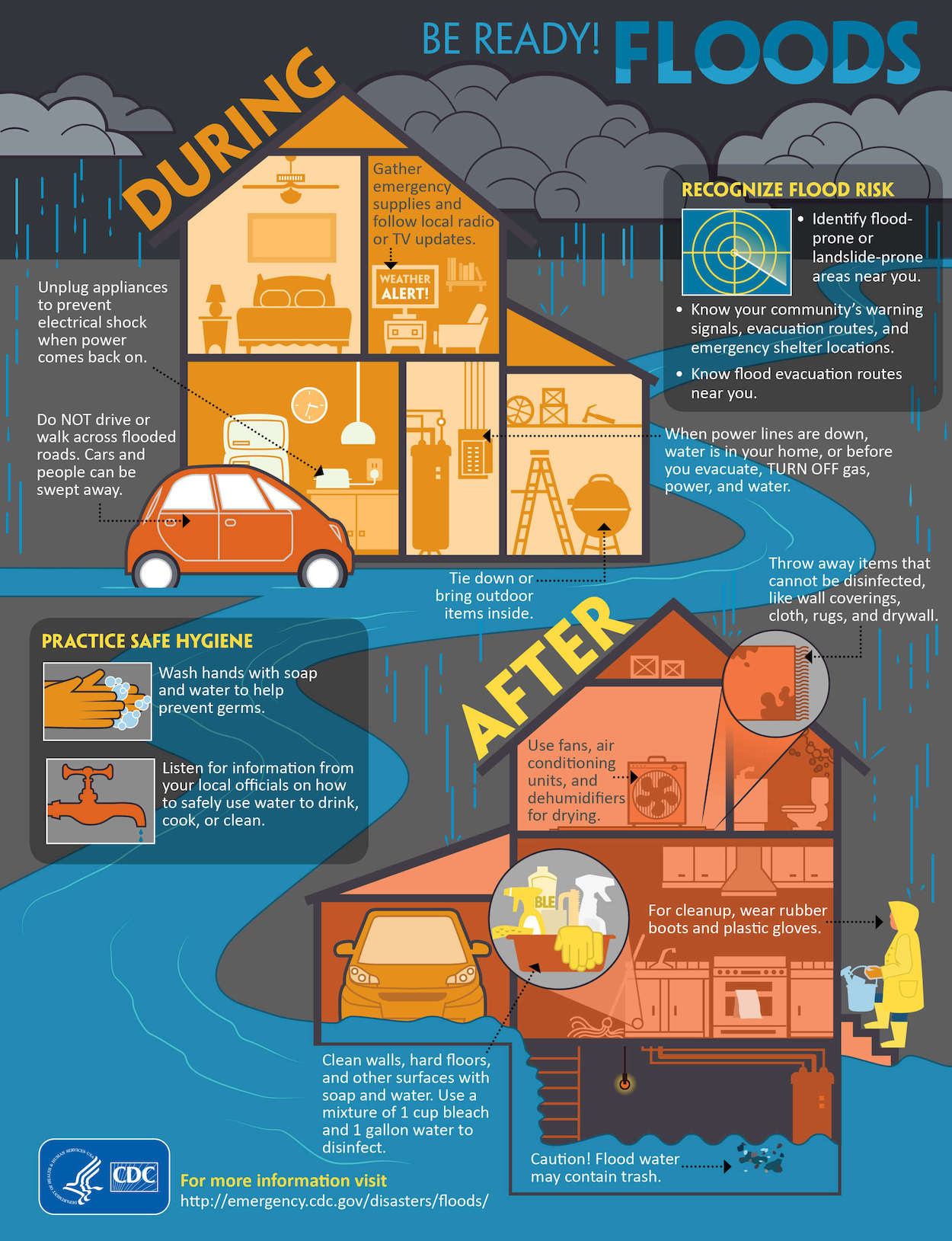
Inclement Weather
Inclement weather can pose a threat to your safety and the safety of your home. Thunderstorms, lightning, heavy winds, and snow and ice are severe weather threats that happen in Sevier County each year. The best way to be prepared is to pay attention to weather reports and warnings of severe weather conditions. You should also stock up an emergency kit with non-perishable food, a flashlight, battery-powered radio, first aid kit, important family documents, and more. Learn more about how to prepare for inclement weather below:
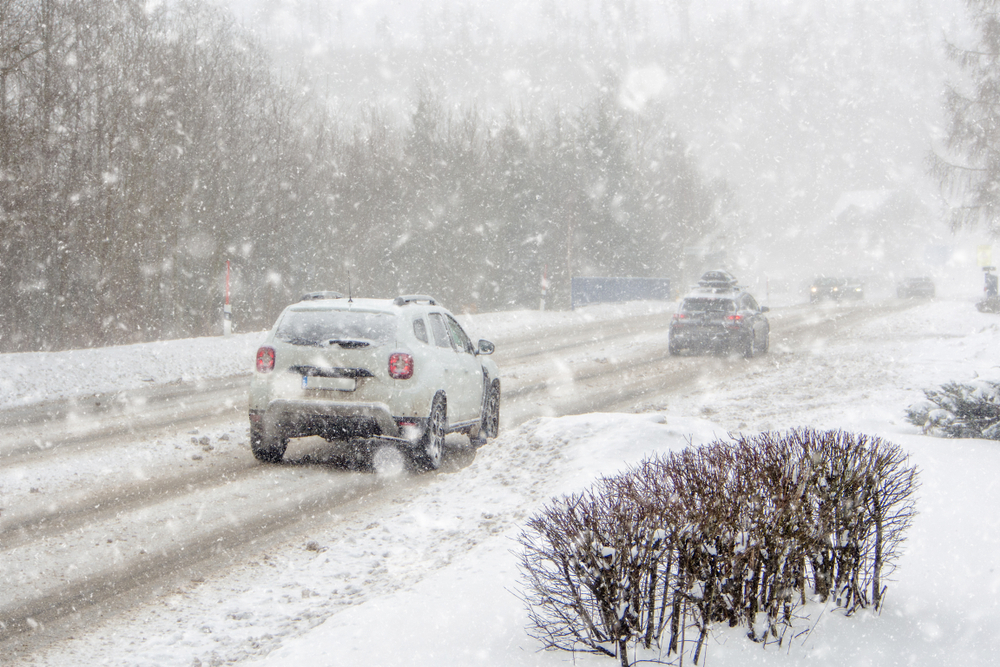
How to Prepare for Inclement Weather
- Check the forecast regularly to see if you’re at risk for severe weather.
- Have a plan with your family that includes an emergency meeting place. Pick a safe room in your home on the lowest floor with no windows. Practice your plan.
- Keep trees and branches trimmed near your house.
- Gather supplies in case you’ll be in your home without power.
- Create an emergency supply kit.
How to Stay Safe During Inclement Weather
- Pay attention to alerts and warnings.
- During winter weather, stay off roads if possible. If trapped in your car, stay inside.
- Limit your time outside.
- Follow your family’s emergency plan.
- Watch for fallen power lines and trees.
Prolonged Power Outages
Extended power outages can not only impact you, but the community as a whole. Power outages can disrupt communications, water, and transportation, cause food spoilage and water contamination, prevent use of medical devices, and more. Although you can’t predict when a power outage will happen, you’re better equipped to handle it if you have a preset plan.

How to Prepare for Prolonged Power Outages
- Take an inventory of items you need that rely on electricity.
- Have flashlights for every family member.
- Plan for batteries and other alternative power sources to meet your needs, like a portable charger or power bank.
- Talk to your medical provider for a power outage plan for medical devices powered by electricity and refrigerated medicines.
- Have nonperishable food and water.
- Keep freezers and refrigerators closed. Use coolers with ice if necessary.
- Install carbon monoxide detectors with battery backup in central locations on every level of your home. Never use a gas stovetop or oven to heat your home.
How to Stay Safe During Power Outages
- Contact your electric utility to report the outage and do not go outside until the power has been restored.
- Turn off electrical appliances and unplug major electronics, including computers and televisions.
- Leave a light on to indicate that power is back on.
- If you use a generator, take proper safety precautions. Always read and follow all manufacturer’s operating instructions.
- Operate generators in well-ventilated, outdoor, dry areas.
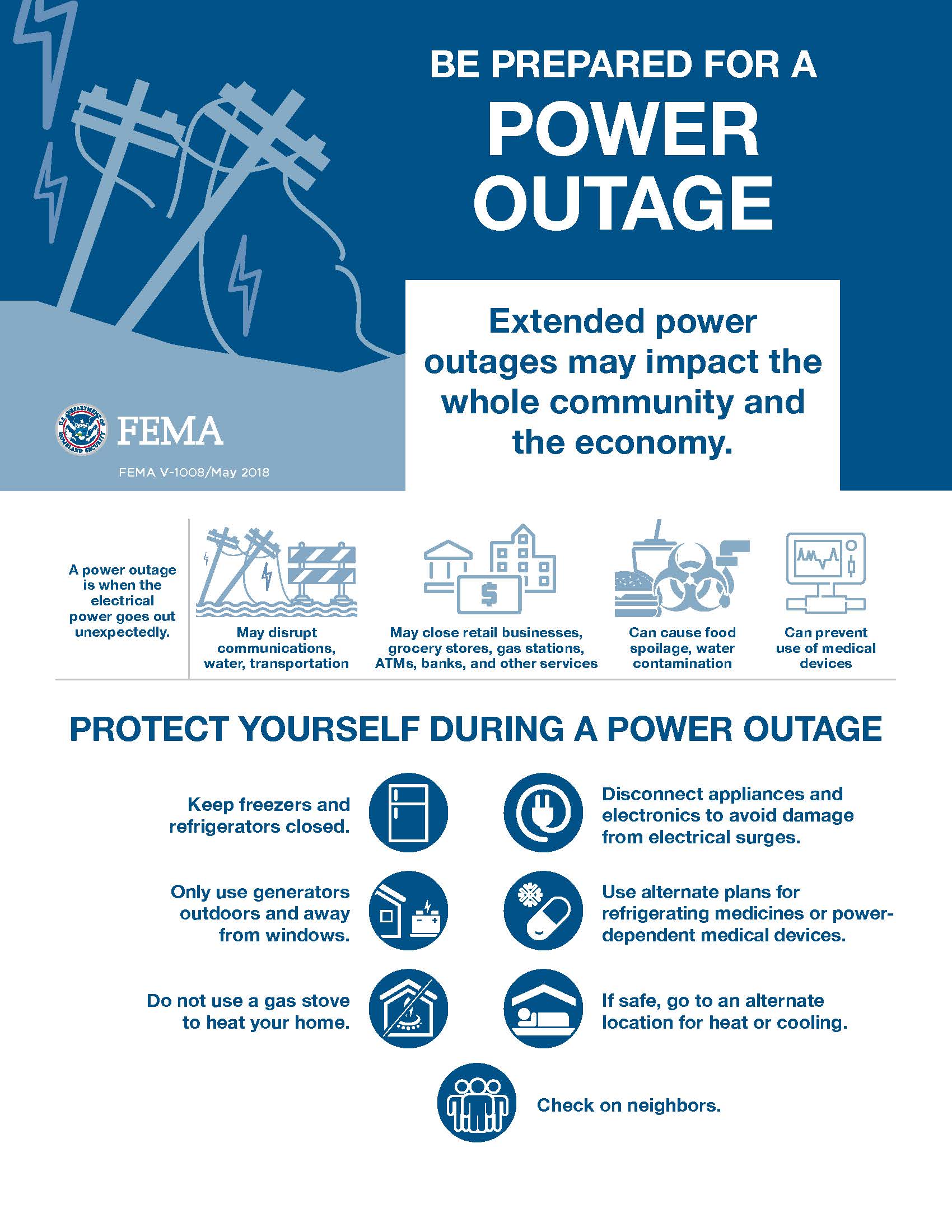
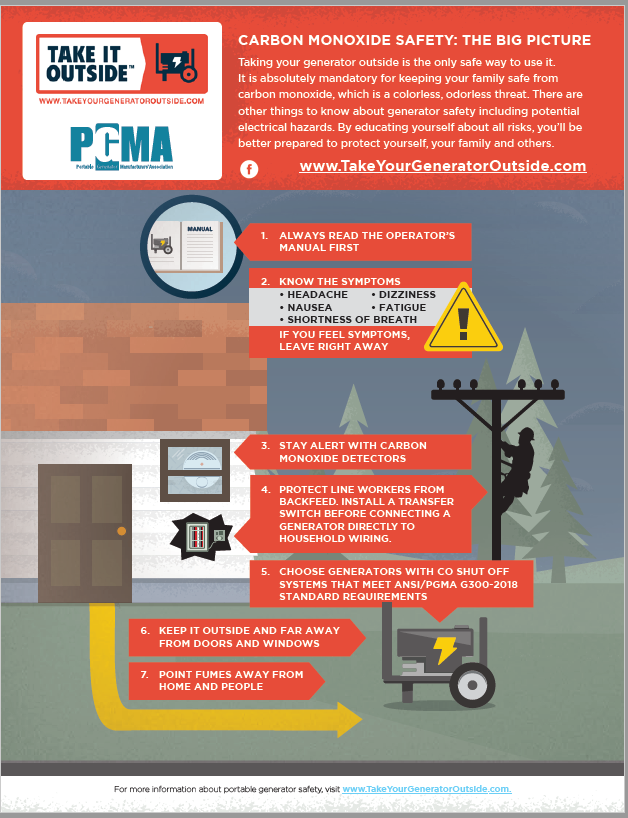
Contact Sevier County Emercency Management Agency
Have questions on how to best prepare for an emergency or need help finding resources? Reach out to us!
- CONTACT US

